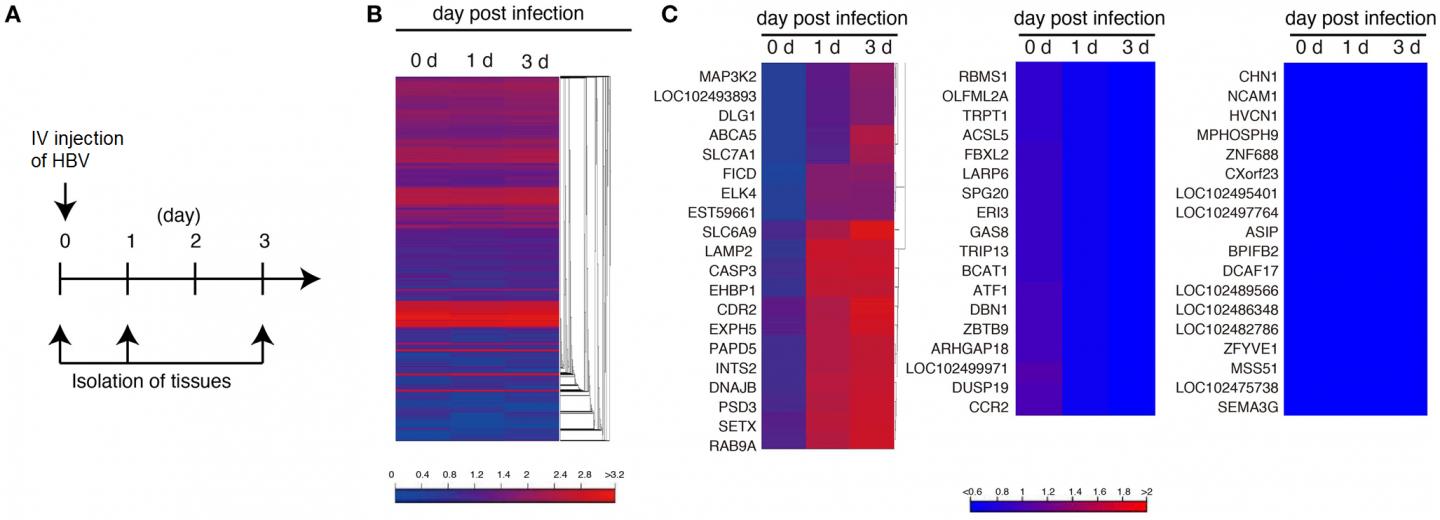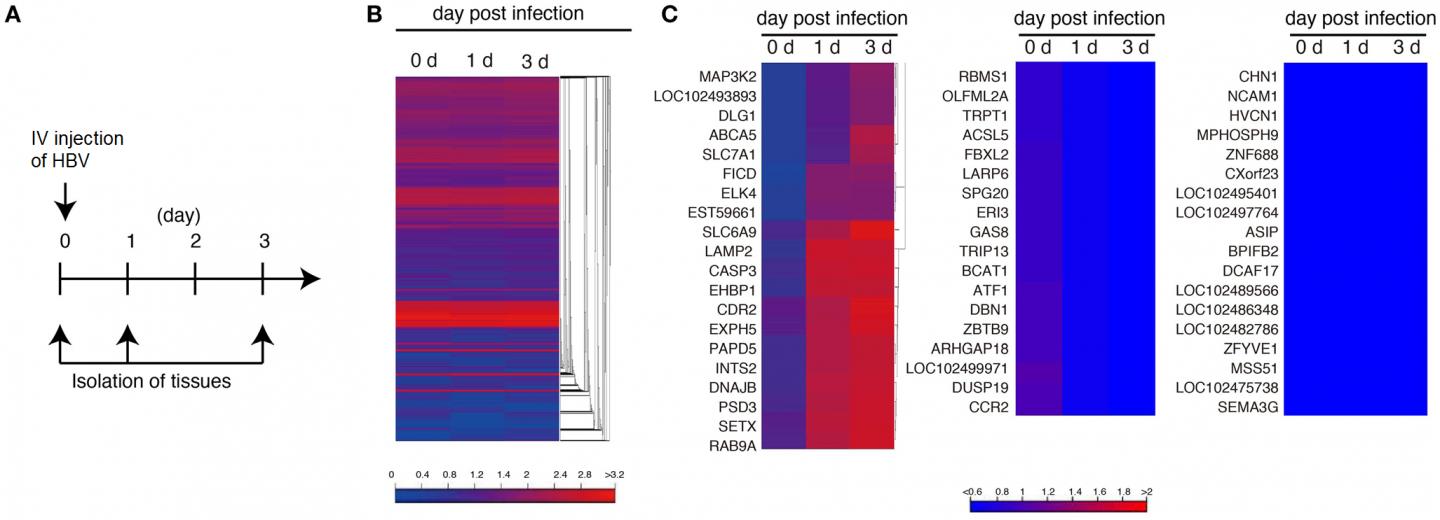
Credit: Professor Hiroyuki Oshiumi
The innate immune system in mammals defends against infection from viruses and other microbial infections. Unfortunately, the human immune response to the hepatitis B virus (HBV) is not yet fully understood. Without vaccination, hepatitis B causes both acute and chronic infections of the liver, and can lead to the development of cirrhosis and liver cancer. To gain a deeper understanding of how the immune system reacts to HBV, researchers from several institutions in Japan and Malaysia led by Professor Hiroyuki Oshiumi of Kumamoto University performed in vivo experiments on the tree shrew, a small mammal that is also prone to HBV infection.
Infection was successful in just over half (55%) of the animals injected with the virus suggesting that a large portion of tree shrews have a natural immunity to HBV. The cytokine interferon-gamma (IFN-gamma), which plays an important role in the activation and modulation of the immune system and in impeding the ability of a virus to replicate, was found early (1 day after infection) in the infected population. This is thought to be caused by the activation of hepatic natural killer (NK) cells in reaction to HBV infection. Further analysis added to the growing body of evidence supporting claims of antiviral actions of IFN-gamma on HBV by confirming that IFN-gamma prompts hepatocyte expression of the DDX60 gene. Expression of this gene causes the degeneration of HBV RNA.
Importantly, the researchers also found that extracellular vesicles (EV) are integral to the innate immune response to HBV infection. "We showed that EVs coming from HBV-infected hepatocytes carry viral nucleic acids which, in turn, stimulates the innate immune response against HBV," said Professor Oshiumi. "However, we also found that HBV can escape the immune response by increasing the immunosuppressive microRNA levels in exosomes. The increase of these microRNAs eventually results in a reduction of NK cell activation which allows HBV to easily proliferate."
The results of this research opens a new window into the innate immune response to the hepatitis B virus and provides further insight into the molecular mechanisms involved. The full article can be found online in the open-access journal Frontiers in Immunology.
###
[Citation]
T. Kouwaki, Y. Fukushima, T. Daito, T. Sanada, N. Yamamoto, E. J. Mifsud, C. R. Leong, K. Tsukiyama-Kohara, M. Kohara, M. Matsumoto, T. Seya, and H. Oshiumi, "Extracellular vesicles including exosomes regulate innate immune responses to hepatitis B virus infection," Frontiers in Immunology, vol. 7, p. 335, Aug 2016.
DOI: 10.3389/fimmu.2016.00335
Media Contact
J. Sanderson, N. Fukuda
[email protected]
http://ewww.kumamoto-u.ac.jp/en/news/





